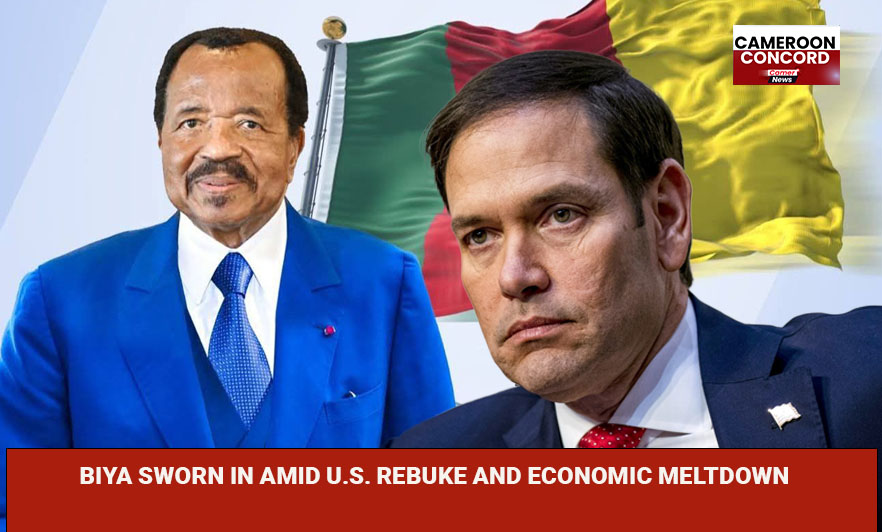- Details
- Politics
U.S. Congress Condemns Cameroon’s Sham Election as Biya Sworn In Amid Crisis
[YAOUNDÉ, Nov 6 – Cameroon Concord] — Paul Biya was sworn in today amid military lockdowns and rising international outrage over what U.S. lawmakers have called “a serious erosion of democratic norms.” A letter from nine members of the U.S. Congress to Secretary of State Marco Rubio denounces the fraud-marred October 12 vote, citing killings, arbitrary arrests, and repression that followed Issa Tchiroma Bakary’s contested loss.

A Mandate Born of Fear
At 93, Biya extends his 43-year rule after election officials claimed he won 53.66 percent against Tchiroma’s 35.19 percent. Independent observers documented pre-stuffed ballots, duplicate voting, and tabulation gaps from Douala to Garoua. The disqualification of Maurice Kamto and suspension of watchdog NGOs erased any pretense of fairness.
Crackdown and Flight
Following the announcement, regime security units detained dozens of opposition members and journalists. Prominent Tchiroma advisers and lawyers have fled the country; several remain missing. The capital’s streets were sealed for the inauguration, while Yaoundé residents watched convoys of armoured trucks instead of celebration.
Economy on Its Knees
Tchiroma’s supporters’ three-day nationwide lockdown has strangled commerce. With supply routes cut, essential goods now arrive by air. A sack of onions once sold for 90 000 FCFA now costs 226 000, while three bulbs retail for 1 500 FCFA. Fuel queues stretch for kilometres as inflation surges and businesses shutter. Economists warn tax revenue collapse could push Cameroon into its worst fiscal crisis in decades.
Washington’s Reproach
The congressional letter lists murders of protesters, unlawful detentions, and disappearances—including of academics linked to the opposition—and urges the State Department to:
-
Demand release of all political prisoners.
-
Hold security officials accountable for extrajudicial killings.
-
Support inclusive dialogue toward a peaceful transition.
Lawmakers caution that renewed instability could spill into Nigeria, Chad, and the Gulf of Guinea, threatening regional trade and U.S. security interests.
A Regime Cornered
Even as Biya’s loyalists hail his “historic continuity,” the regime faces unprecedented diplomatic isolation. The EU and African partners weigh sanctions, while investors flee a market paralyzed by fear and scarcity. For many Cameroonians, Biya’s latest oath feels less like renewal than confirmation of national exhaustion.
- Details
- News Team
- Hits: 213
